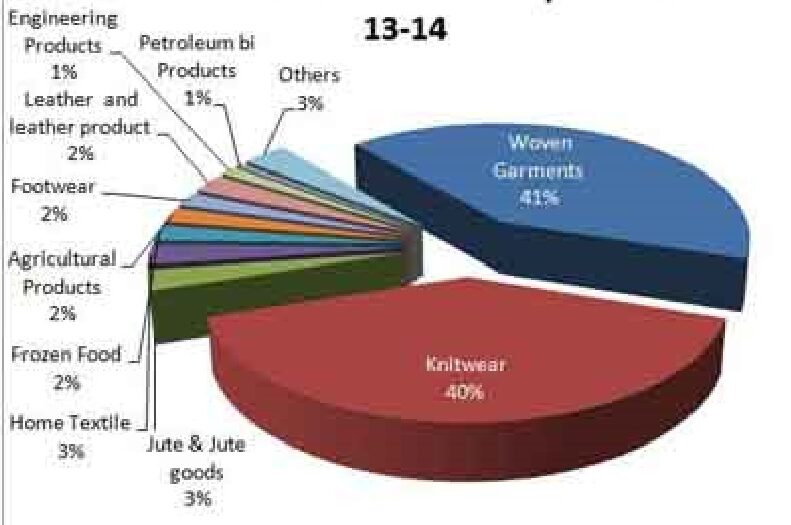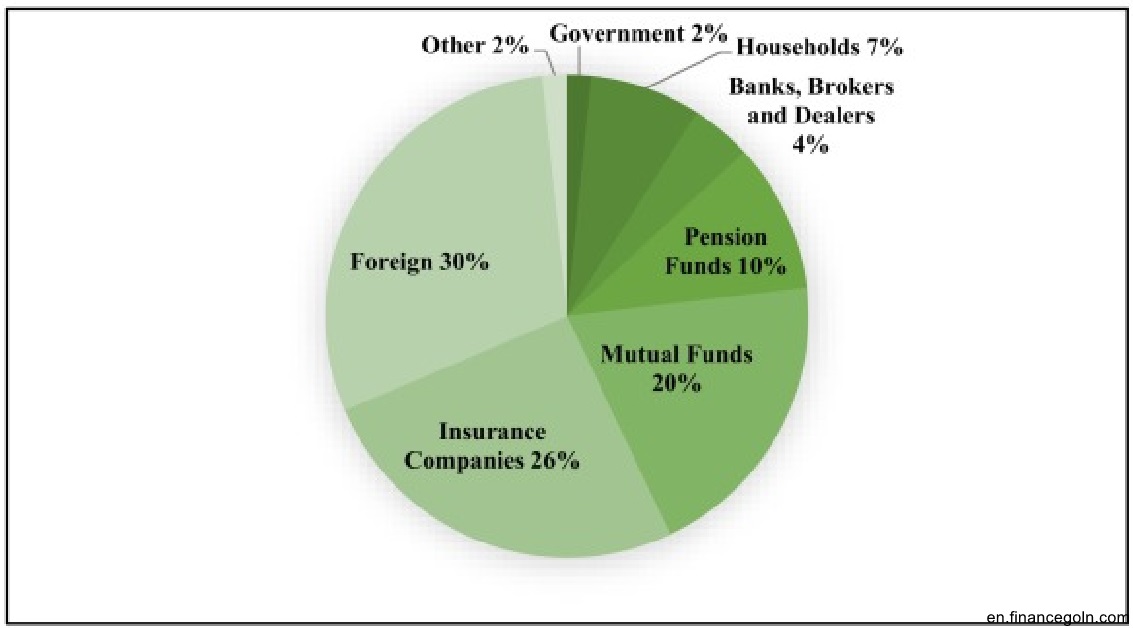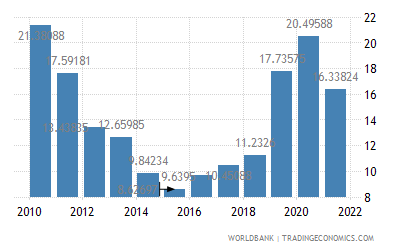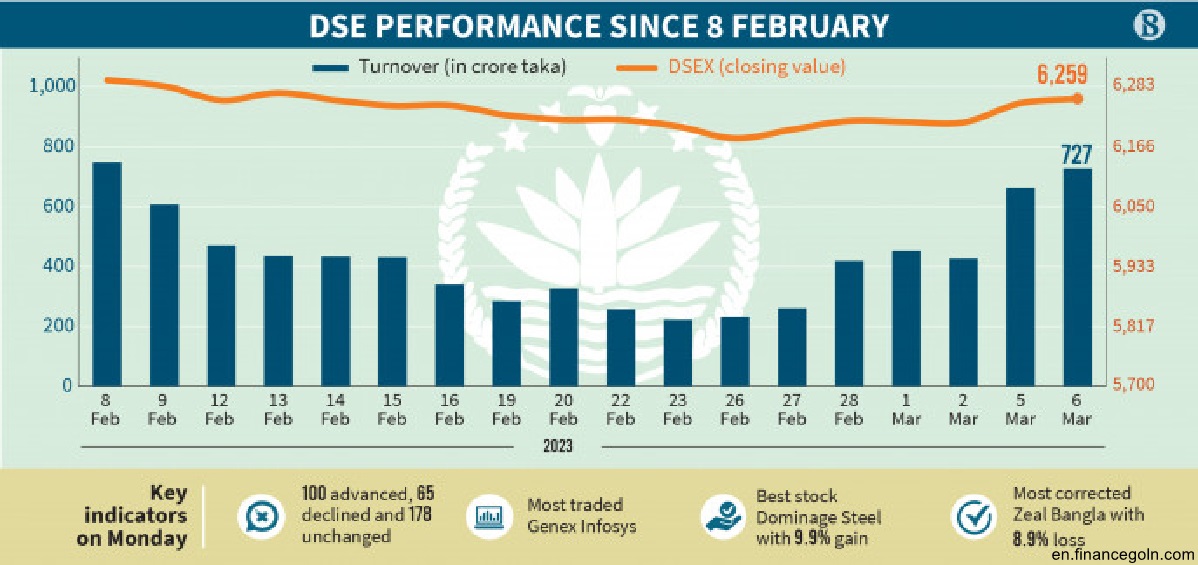Today we will discuss Dividend practices in the corporate sector of Bangladesh: A study of the companies listed with the Dhaka Stock exchange

Dividend practices in the corporate sector of Bangladesh: A study of the companies listed with the Dhaka Stock exchange
The dividend policy is a pivotal policy around which other financial policies rotate. An appropriate dividend distribution policy can not only set a good corporate image but also build the confidence of investors in the company’s prospects. A review of the literature reveals that studies investigating the dividend policies of companies abroad have been conducted.
The research work in this field is not enough yet in the Bangladeshi context. No comprehensive study in this area has so far been made in the corporate sector in Bangladesh. Against this backdrop, the present study has been undertaken to evaluate the dividend policy practices of listed companies in Bangladesh.
The objectives of this study are to analyze the impact of dividend policies on market prices of shares, to identify the determinants of dividend policies of corporate firms, to examine the dividend policies practiced in corporate firms, to examine the application of existing dividend models in the context of Bangladesh, to identify the Flaws with the Existing Dividend Practices of Corporate Firm, to provide the policy implications of dividend policy to strengthen the capital market of Bangladesh.
The hypotheses have been drowning based on existing wisdom as well as the theoretical framework of the study. The research findings and inferences of this study are expected to be useful to practitioners, investors, policymakers, researchers, and academe icons. The sample includes listed finanwhichand nonfinancial the rms of the Dsectorka Stock Exchange).
The size population is 147 listed samples from which 22 companies from the banking sector and 86 companies from the manufacturing sectors are taken as a sample by applying a stratified random sampling technique. The period of study is 20 years from 1994 to 2013. The secondary data have been collected by consulting available literature and sources (companies’ annual reports, publications of DSE, etc.). The data thus collected have been tabulated manually and electronically.
It can be worth mentioning that the study has collected opinions and views of the board of directors, and CFO (Chief financial officer) on 5- a point Likert scale. The Cronbach α of the data is found 0.810. This has substantial reliability of data coll, acted through enumerators. The data have been analyzed by applying financial techniques, statistical techniques, and econometric techniques.

The financial techniques are-financial ratios, market ratio, market model, and BHAR (buy and hold abnormal return), and the statistical techniques are descriptive statistics (mean, minimum, maximum, etc.), ANOVA, correlation, and regression. The pooled data OLS, GLS, panel data analysis (FE, RE), factor analysis, and structural equation modeling are hat-tested and used as econometrics techniques ues. The study has also used techniques like the F test, Wald chi-square test, t-test, and chi-square test for testing the hypotheses of the study.
The study used SPSS, STATA, EXCELL, and AMOS for the analysis of data. The study has been organized into eleven chapters. The study has examined the impact of dividend policy on the firm value by applying panel data analysis techniques (fixed effect and random effect) is it has found that the dividend presignifies signal impact on the firm value. The R2 value of the models are 0.765 in FE and 0.69 in RE which signify the more accounting for a higher variance of independent variables on the value of the fidividendsoutcome of this model has been in linen e with the relevant theorem of dividend.
The announcement effects of dividends on share price are analyzed with an event study (sharest model and BHAR) and it is found that the dividend initiatsectorsnouncements react to the market price of shares around the event dates in both financial and nonfinancial sectors. The dividend omission announcements also have an impact on market price before and after the event date in only the nonfinancial sector.
The study has found a common behavioral model (The abnormal returns start to decline from day-4 and reach to lowest on event day then further start to raise. The abnormal returns reach peak on day 5). This finding has supported the wisdom of the signaling theory of dividends.

The study has identified the determinants of dividend policy by applying OLS, FE, GLS, and structural equation modeling techniques. Among the deter, ruminants, the lagged dividend payout ratio, sponsor, risk, profitability, and leverage are positively significant, and liquidity and sales growths are negatively significant to the dividend payout ratio in nonfinancial sectors.
The lagged DPR, size of the firm, and leverage have a positive impact on the dividend payout ratio and the retained earnings ratio hurts DPR in the financial sector at a 5 percent level of significance. The R2 of the models in nonfinancial sectors are 0.963 in OLS and 0.63 in FE and the R2 of OLS, and GLS are 0.582, and 0.592 respectively in financial sectors which indicates more accounting for higher variance of independent variables on the dividend payout ratio.
A structural equation model on dividend dsurveysnants has been developed in this study. Factors Influencing Dividend Policy have been identified through surveys from listed companies of DSE and analyzed with nonparametric trends and price-related.
The study has found that the Earnings and liquidity factor, Past dividend issue factor, and market price-related factor are the most significant determinants in dividend decisions in nonfinancial sectors, and the ‘target payout and past dividend pattern factor’, ‘earnings and catering factor’, ‘liquidity and market reaction factor’ are important determinants of dividend decision in the financial sector.
So, paymentspanies mainly consider the current earnings, liquidity position, and pattern of previous years’ dividend payment of the company at the time of dividend payment. A theoretical model of dividend influencing factors has been developed from the findings. This thesis presents the dividend practices and performance of listed companies in Bangladesh.

In Nonfinancial sectors:
The miscellaneous sector provides the highest payout. The DPS, EPS, and MPS of large-size firms are better than small and medium-sized firms. The payout of the older firms is more than the newly listed firms. The highest payouts are in medium-leveraged firms, low-risk firms, and medium PE ratio firms. The survey results have revealed that both the shareholders and the companies prefer the cash dividend most. Most of the companies pay cash dividends with stable payouts.
Most of the companies follow the increasing g trend in dividend payment but have no satisfactolarge-sizehfirmsconducted to justify the inflow-leveraged firms. In financriskcfirms The maximumratiosfirms in large size firms, earlier listed companies, low-leveraged firms, and high-risk’s firms, medium-Pthe E ratio firms. The survey results dividendseaMost the companies prefer both cash & stock dividend most but majority shareholders prefer stock dividends.
Most of the companies follow stable payout with increasing trend in dividend payment but no satisfactory research is conducted to justify the investors’ preference. The study has examined the application of dividend models in Bangladesh by using factor analysis and parametric, nonparametric test and it is found that the catering theory, signaling theory, and dividend relevance theory are the most important theories followed by the dividend decision makers in nonfinancial sectors.

The dividend,d policy decisions are for the lower signaling theory, bird- in-the hands policy, Lintner model, residual policy, and life cycle theory in the financial sector of Bangladesh. The important problems in dividend practices are identified by parametric test, nonparametric test, and descriptive statistics from survey opinion of the board of directors and the problems are ‘cash dividends affect on liquidity’, higher expectation of shareholders, imperfect capital market, regulatory changes, the ambiguity of dividend, unanticipated economic change, insider trading.
The other reforms and problems are previous non-dividend culture, lack of study on dividend policy, lack of dividend policy in the firms, and investors’ attitude toward dividends. Based on the findings and inferences, the study has suggested pragmatic policies and strategies for making appropriate dividend policies and finally making prudent dividend decisions for corporate firms.
The policy implications include corporate policy measures, strategic measures, model-based suggestions, and regulatory measures for optimum dividend policy decisions. The important suggestions for dividend policy are regular dividend payment, maintaining liquidity level, regularity measures for preventing information leakage and insider trading, enforcement of existing laws, etc.

This study represents the picture of the dividend performance and dividend policy in corporate see, actors in Bangladesh. The developed models from this study will help the investors, policymakers, companies, and related stakeholders. This research will explore the avenues of further research on the dividend policy of an emerging market and act as a referred study.
Description:
This thesis is submitted by the requirement for the degree of Doctor of Philosophy.
